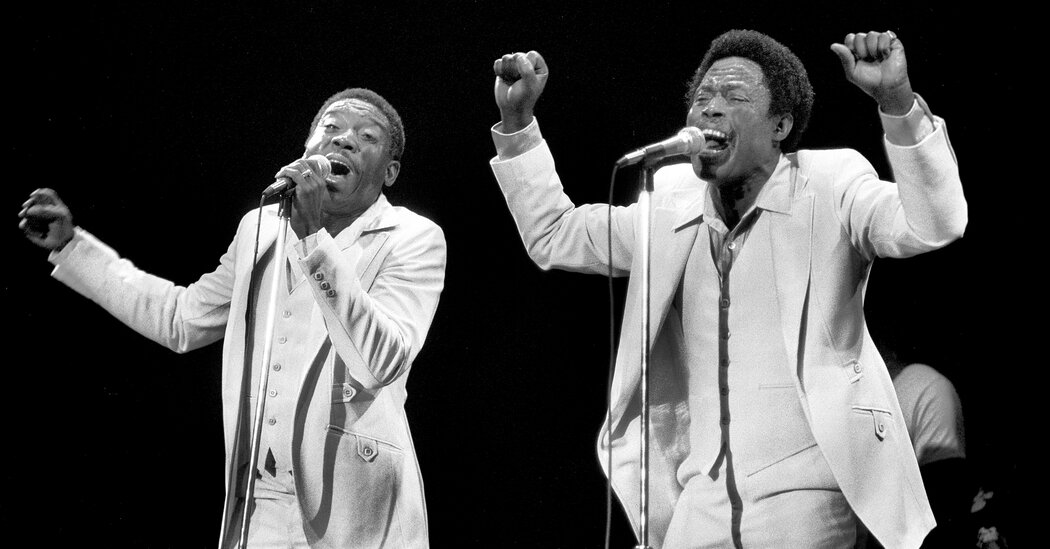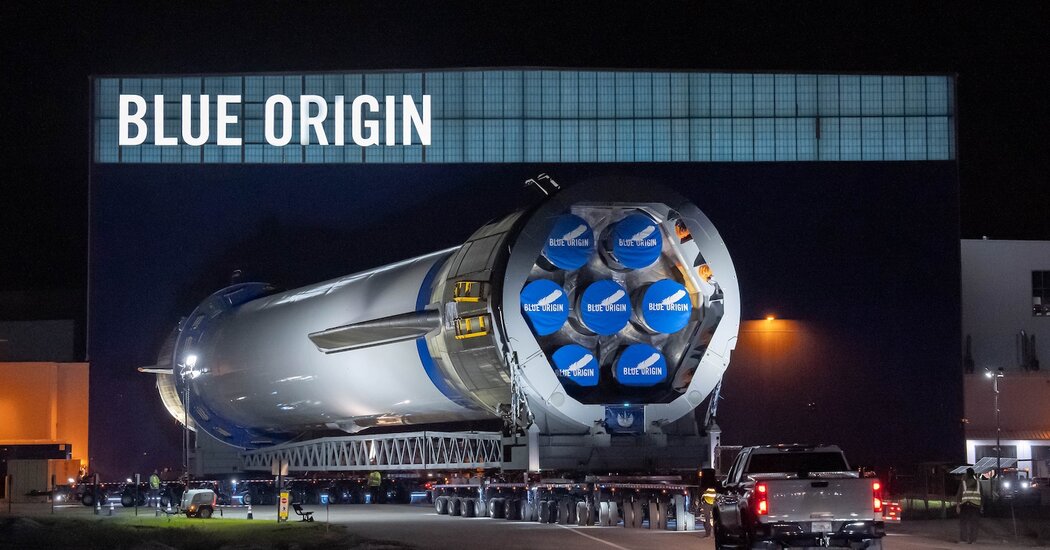Sam Moore, the tenor half of the scorching soul duo Sam & Dave — known for indelible hits like “Soul Man,” “Hold On, I’m Comin’” and “I Thank You” — died on Friday in Coral Gables, Fla. He was 89.
His death, in a hospital after surgery, was confirmed by his wife and longtime manager, Joyce Moore. She said the exact cause was unclear.
At their peak in the 1960s, Sam & Dave churned out rhythm-and-blues hits with a regularity rivaled by few other performers. When “Soul Man” topped the R&B charts and crossed over to No. 2 on the pop charts in 1967 (it also won a Grammy), its success helped open doors for other Black acts to connect with white audiences.
Sam & Dave’s live shows were so kinetic — they were known as the Sultans of Sweat and Double Dynamite — that even as charismatic a performer as Otis Redding was hesitant to be on the bill with them, for fear of being upstaged. Mr. Moore once spoke of his need to “liquefy” the audience before he considered a show a success.
“The strength of Sam & Dave,” he said, “was that we would do anything to please the audience.”
Mr. Moore and Dave Prater, a baritone, met at an amateur night at the King of Hearts, a nightclub in Miami, in the early 1960s. The two unpolished young singers wound up together onstage by accident — Mr. Prater was having trouble remembering the lyrics to a song, and Mr. Moore fed them to him — but they clicked instantly with the audience.
Both men had started out singing in church, and they developed a stirring gospel-tinged call-and-response style that became their trademark. They signed with a local record label, Marlin, and then moved on to Roulette Records in New York. But their early records failed to chart, and they retreated to the King of Hearts.
One night in 1964, Ahmet Ertegun, Jerry Wexler and Tom Dowd of Atlantic Records came to see them perform. Impressed, they offered the duo a contract. The company put the Memphis soul label Stax Records in charge of the production of their records, which would then be released and distributed by Atlantic.
In his autobiography, “Rhythm and the Blues,” Mr. Wexler wrote, “I put Sam in the sweet tradition of Sam Cooke or Solomon Burke, while Dave had the ominous Four Tops’ Levi Stubbs-sounding voice, the preacher promising hellfire.”
Lending them to Stax proved to be an inspired move. In Memphis, Sam & Dave became part of a remarkable musical family that was a grittier counterpoint to Berry Gordy’s humming hit factory at Motown.
Working with the producers and songwriters Isaac Hayes and David Porter, the house band Booker T. & the M.G.’s and the crisp horns of the Mar-Keys, Sam & Dave were soon enjoying the benefits of stardom, including their own tour bus and plane, plus an entourage of women and hangers-on. They also both became addicted to heroin.
Samuel David Moore’s life can be divided into three almost implausibly tidy acts. Act I began with his birth in Miami on Oct. 12, 1935. His mother, Louise Robinson, was a teacher, and he described his father, John Richard Hicks, as “a street hustler,” a tireless womanizer whose son was soon following in his footsteps. (When his mother married a man named Charlie Moore, the boy took his stepfather’s surname.)
While still in high school, Sam was shot in the leg by the jealous husband of a married woman he was seeing. He later served 18 months in prison for procuring prostitutes. But music lifted him. He sang in a Miami Baptist church, then with an a cappella group called the Majestics and a gospel group called the Mellonaires, before teaming up with Mr. Prater.
Act II began with Sam & Dave’s first breakup in 1970, as their popularity waned. When their solo careers failed to take flight, they reunited and broke up several times. The two were never personally close.
“It was a duo,” Mr. Moore said in the 1998 book “Sam and Dave: An Oral History,” edited by Dave Marsh. “But it wasn’t a partnership.”
Sam & Dave toured in the United States, Europe and Turkey, but their drug abuse had begun to take its toll. Their downward spiral was briefly slowed when John Belushi and Dan Aykroyd, as the Blues Brothers, recorded a hit version of “Soul Man” in 1978, bringing new attention to the original.
Sam Moore and Dave Prater performed together for the last time on New Year’s Eve 1981 in San Francisco. After walking offstage, they never spoke to each other again.
Mr. Prater recruited a new partner, Sam Daniels, and they worked together, billed as Sam & Dave or the New Sam & Dave Revue — over Mr. Moore’s objections — until Mr. Prater died in a car accident in 1988.
Act III opened the year after that final show, when Mr. Moore married Joyce McRae, a self-described “upper-middle-class Jewish girl from Chicago” who had first seen him perform in 1967. She helped him get sober, took over managing his career and guided him through a productive professional twilight.
Sam & Dave were inducted into the Rock & Roll Hall of Fame in 1992 and received a lifetime achievement Grammy Award in 2019.
Information on survivors in addition to his wife was not immediately available.
Mr. Moore’s solo album “Plenty Good Lovin’,” which he recorded in 1970 but Atlantic, for a variety of reasons, had declined to release, finally arrived to glowing reviews in 2002. He performed for presidents and recorded with Bruce Springsteen, Conway Twitty, Lou Reed and other singers. He also worked to help secure other performers’ and songwriters’ long-overdue copyrights and royalties.
“It’s been a roller-coaster ride, but mostly a good one,” Joyce Moore said in an interview in 2014. “The single most painful part has been realizing how abused and mistreated Sam and his peers were — and still are. Most of them have never gotten their due. But we’ve been blessed.”
Hank Sanders contributed reporting.



